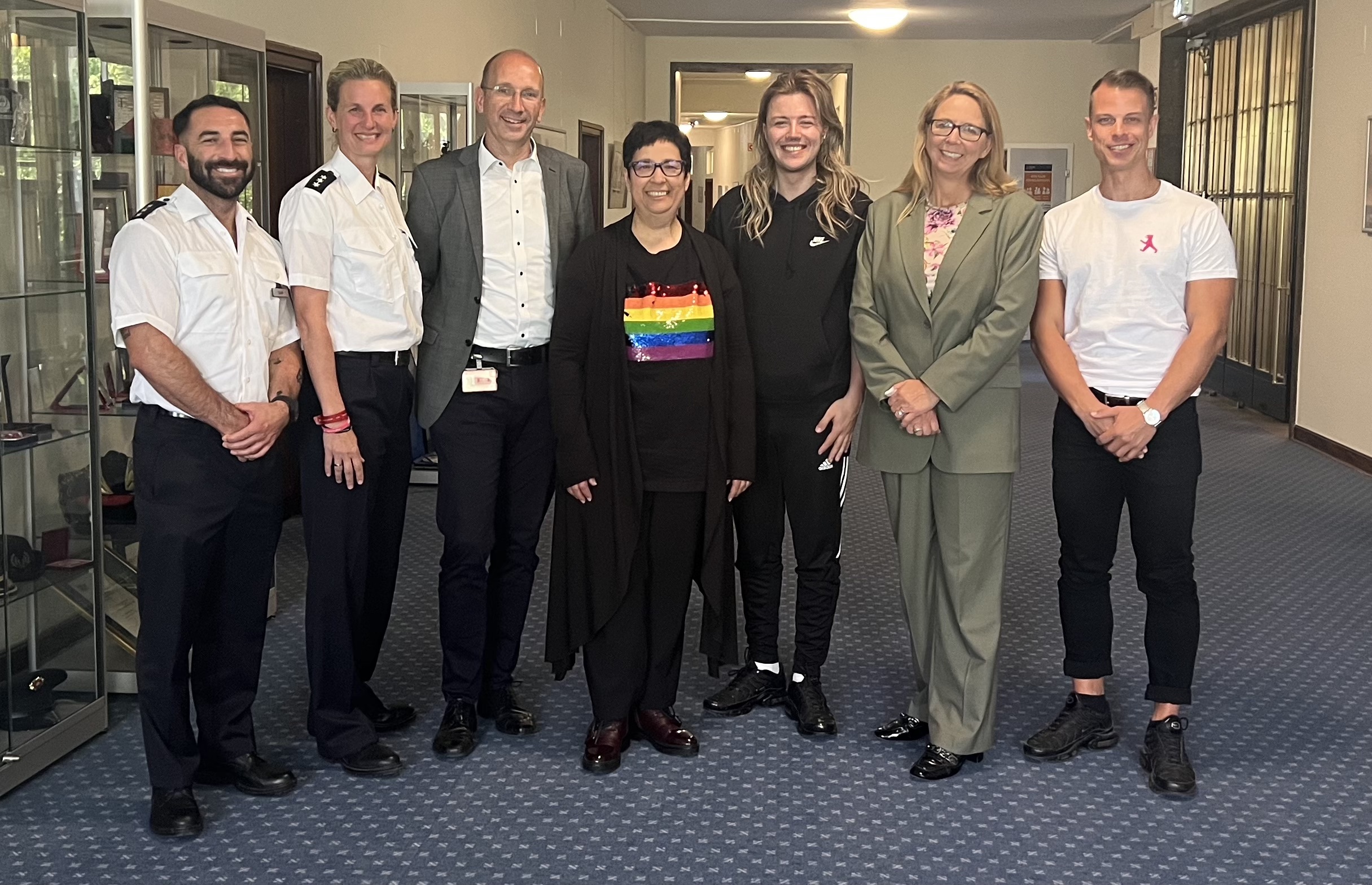CSD Board meets Police Chief & LGBTIQ Commissioner
On June 5, the board of the Berlin CSD e.V. met again the Berlin police chief Dr. Slowik for the annual exchange together with the LGBTIQ officers Anne von Knoblauch and Michael Späth to talk about the current security situation for queer people in Berlin.
In 2022, the crime rate showed only a minimal increase. However, it should be noted that these are reported crimes and experts assume that the number of unreported cases is around 95 percent. Nevertheless, there have been positive developments, such as the use of video footage, although it is only stored for 48 hours, to aid law enforcement. There have also been improvements in the efficiency of ad recording, and public transport (PT) remains a focus in terms of security measures.
- Security measures in public transport: Berlin’s public transport company (BVG) has responded by introducing private security inspectors who are now much more recognizable. This is a measure to strengthen passengers’ sense of security. Nevertheless, there continues to be a high level of skepticism towards the police in the trans community, including from our board member Stella Spoon, and a call for more education and confidence building within the police.
- Progress on LGBTIQ Unit Training: LGBTIQ unit training has improved, both in terms of responses and seriousness. This is due in part to increased education and a generational shift within the police. A network of 100 colleagues trained as “multipliers” by Anne and Michael plays an important role in this.
- Demand for a third position in the LGBTI office: In view of the increasing need for education and the large number of events and appointments, especially in the summer, the LGBTIQ office demands an additional position. The question is whether this can still be implemented.
- Exchange with other federal states and expansion of LGBTIQ offices: The question of exchange with other federal states and the possibility of establishing more LGBTIQ offices is discussed. Although the Ministry of Interior holds meetings on this, the legal competence for police at the state level is limited. However, the President offers to present the Berlin group at a meeting in the fall and raises awareness of the issue with a representative from Bavaria.
- Violence statistics and combating hate crime: The violence statistics show an increase in reported crimes, with the President noting an increasing propensity to violence in society. There is still the problem of naming groups of perpetrators. Violence in religious groups and the increasing hatred towards LGBTIQA people, especially in certain streets and subway lines such as Sonnenallee and Hermannplatz, are addressed.
A campaign to introduce 48-hour video recordings in public transport (ÖPNV) will be launched in cooperation with the Berlin CSD e.V. to increase security.
President Slowik emphasizes “that every case of queer hostility, even within the police, hurts.” To counteract this problem, special training for all female candidates is part of the curriculum. In addition, multipliers* have been trained to raise awareness. However, there are still areas that are considered “no-go areas” for queer people.
Another important aspect is to address the mockery of victims. Expertise in victim protection is being promoted and expanded.
With regard to online hate crime, Stella asks what concrete action is being taken. The police have responded by allowing easier reporting options and increased prosecution by special teams. Slowik sees progress here, as the police are taking direct action against the perpetrators, which has a deterrent effect.
In addition, Slowik promises increased checks on specific subway lines to ensure passenger safety.
More info: Police LGBTI Unit
